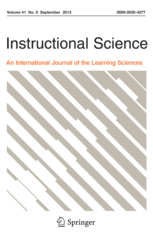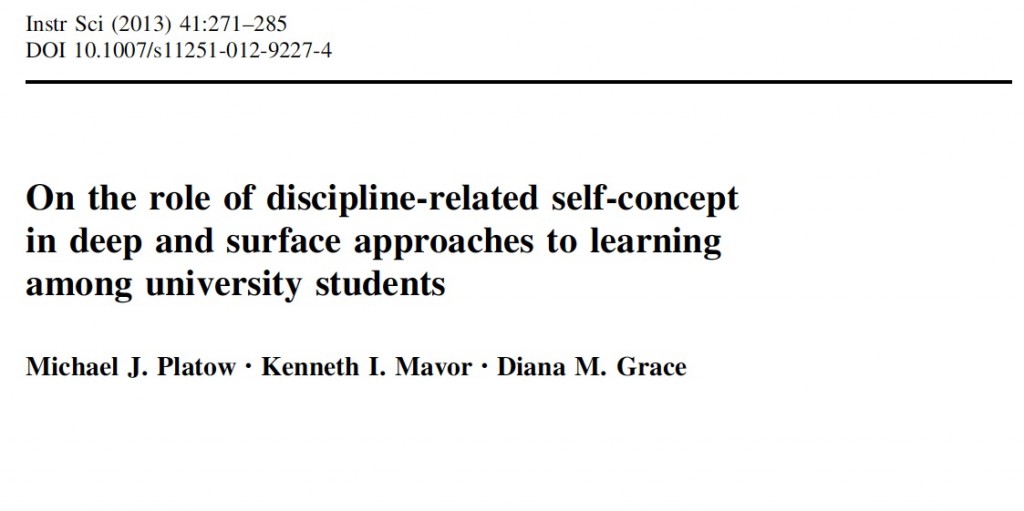On the role of discipline-related self-concept in deep and surface approaches to learning among university students
 This was the first paper in what has become the LACES project. We explore the self and identity implications of deep and surface learning and suggest some reciprocal relationships between learning style, grades, and discipline identity.
This was the first paper in what has become the LACES project. We explore the self and identity implications of deep and surface learning and suggest some reciprocal relationships between learning style, grades, and discipline identity.
Platow, M. J., Mavor, K. I. & Grace, D. M. (2013). On the role of discipline-related self-concept in deep and surface approaches to learning among university students. Instructional Science. 41(2) 271-285.
Abstract
The current research examined the role that students’ discipline-related self concepts may play in their deep and surface approaches to learning, their overall learning outcomes, and continued engagement in the discipline itself. Using a cross-lagged panel design of first-year university psychology students, a causal path was observed in which students’ Semester 1 deep approach to learning positively predicted their Semester 2 psychology-student social identification; this relationship was mediated by students’ actual Semester 1 learning. Moreover, relatively high levels of Semester 2 psychology student social identification led to a desire for further engagement in the discipline through an enhanced intent to continue their psychology studies. In contrast, discipline-related selfconcept was not observed to act as a precursor to learning approaches. Overall, the current data provide clear evidence not only for the validity of the deep learning approach construct, but for the theoretical claims associating a deep learning approach with an impact on self-concept, and the educational value of encouraging a deep learning approach both for short-term academic performance and for continuing motivation to engage in the discipline.

